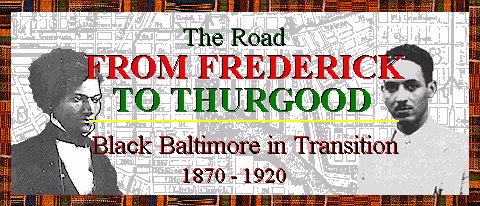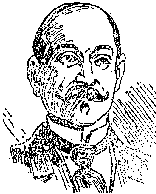| While they
were prepared for the responsibilities of citizenship, perhaps more so
than any other group of their size in the nation, unlike their kinfolk in
much of the South, blacks in Baltimore would have to deal with the wrath
of the Democratic Party very early on. Weakened on a national level by the
sanctions of the Radical Republican Reconstruction, the Democratic organization
in Maryland would control politics on the state level and in Baltimore
city for most of the post-Civil War nineteenth century. Betraying popular
sympathies and shaping black expectations was the fact that the much celebrated
the Fifteenth Amendment to the U.S. Constitutions became law in 1870 without Marylanders
ever ratifying it (at least not until 1973). One of few visible benefits
of black Republicanism in Democrat-controlled Maryland were the few
minor patronage positions garnered via the Republican-controlled federal government. In spite of this, black Republicans towed the party line with the understanding
that black and white Republicans would work together, succeed together,
and, perhaps eventually, enjoy the spoils together. The first opportunity
to enjoy those spoils came in 1895 when Republicans dominated elections. A solid quarter-century of Democratic rule ended, and the Republicans
finally controlled the state and the City of Baltimore. This victory and
local-level Republican organizing over those twenty-five years, was in
no small part the result of black partymen's loyalty. Recognition of this
fact in terms of patronage or even acknowledgement, however, was slow in
coming. Many black Republicans lost their patience with the party and began
to weigh alternatives. |


